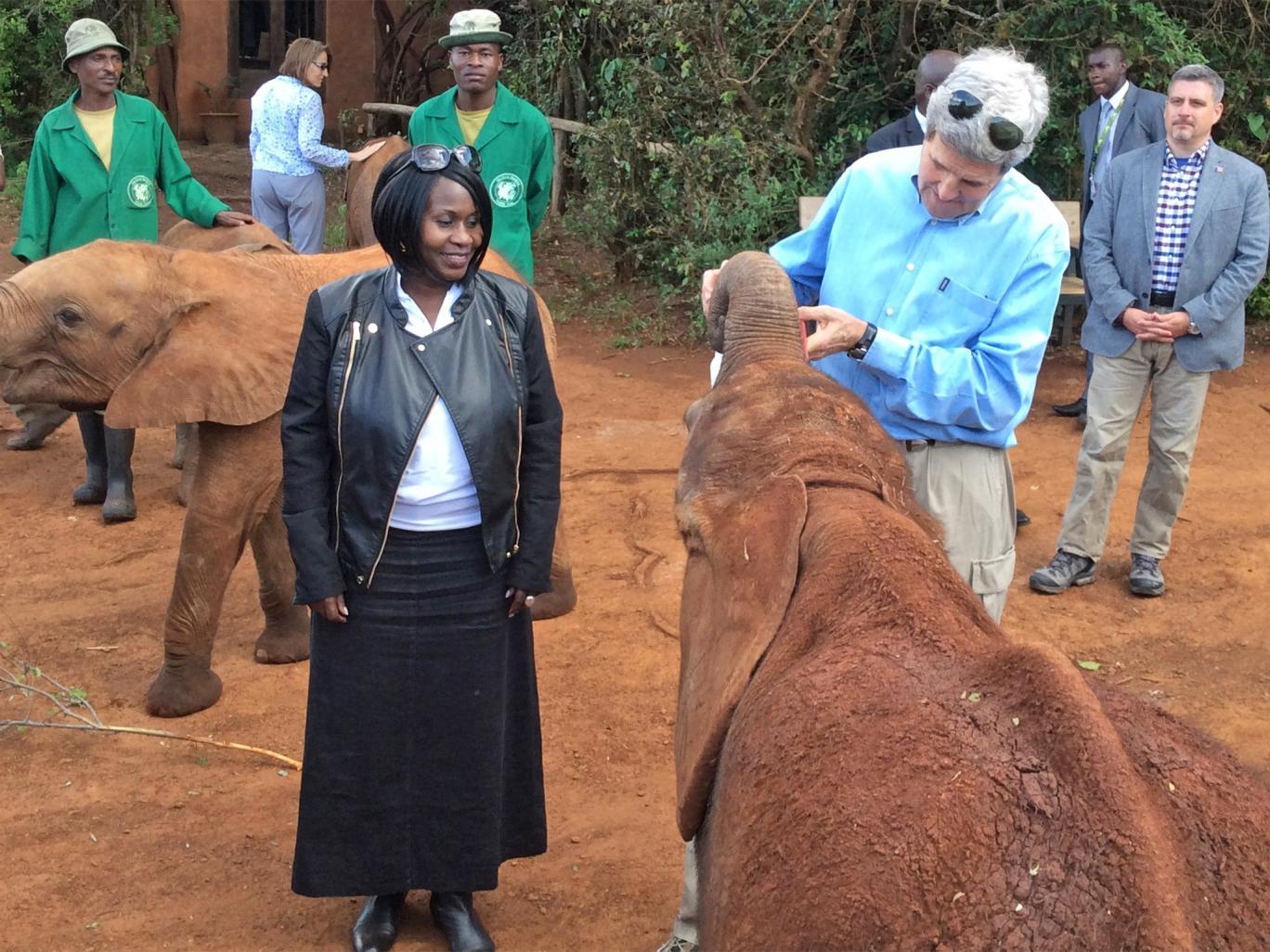Judi Wakhungu: A leader who uses her power to protect Africa's wildlife
Kenya’s Cabinet Secretary for Environment believes that protecting biodiversity and national development can go hand in hand

When Kenyans head to the polls on 8 August they will be voting in an election that matters not just to Kenya but to the rest of the world. While its capital Nairobi has long been a trade and economic hub, it is also home to most of the region’s humanitarian agencies, as well as wildlife conservation NGOs which often positively influence other African nations.
The country’s Cabinet Secretary for Environment and Natural Resources, Professor Judi Wakhungu, has long understood that what happens in Kenya has a far-reaching effect, and has made the most of that platform.
A former Executive Director of the African Centre for Technology Studies and a Professor of Science, Technology and Society, Prof Wakhungu was appointed to her political post by President Uhuru Kenyatta in 2013. Since then her mission has been to prove that protecting biodiversity and developing a nation can go hand in hand - and to prove that to a global audience.
The past four years have seen Prof Wakhungu demonstrate her commitment to safeguarding the environment, with shows of strength on policies from climate change to water harvesting and the recent ban on plastic bags. It has seen Kenya take a lead in sustainable development - not only in an African context but in a global one.
Speaking of the challenges faced, Prof Wakhungu has said: “Kenya’s population is growing. Demand for development and infrastructure is growing. That is why we must promote sustainable development; to maintain our biodiversity but at the same time grow our infrastructure.
“It is we humans who are encroaching on areas for wildlife. But wildlife and humans have lived in harmony for a long time, and that is what we must promote. It is only by protecting our diversity that will allow us to weather the effects of climate change.”
The protection of large areas of land, community, state or private-owned, has long been a key focus of her work. Securing space is vital in order to conserve biodiversity, and also helps inspire all sectors of society to help safeguard wildlife and creates tourism jobs.
Today at least 10 percent of Kenya’s landscape is protected as national parks, marine parks and conservancies. And thanks to successful partnerships with wildlife and conservation charities, the Kenyan government has invested in the protection of animal corridors and the construction of fences to mitigate against human-elephant conflict (HEC).
As for arguably the most complex, urgent and emotive problem facing Kenya’s remaining elephant population - that of poaching – Prof Wakhungu has shown she understands it is not a problem that can be solved by one nation. It can only be done together, in a show of unity by leaders of elephant range nations.
This has been demonstrated by how, during her time as Secretary for Environment, Kenya has become a committed member of the Elephant Protection Initiative (EPI) and became a founding member of the Giants Club, the EPI-supporting cross-border project of the conservation organisation Space for Giants. The Giants Club aims to protect at least half of Africa's remaining elephant population by 2020 and does so by working with the most conservation-committed of the EPI countries.
In April 2016 Kenya hosted the inaugural Giants Club Summit. It also undertook the world's largest ever ivory burn, which saw more than 100 tonnes of ivory set ablaze, bringing the world’s attention to the elephant crisis and the message that illegal ivory trade must stop.
Dr Max Graham, CEO of Space for Giants, hailed Prof Wakhungu’s vision. “Judi has been the single most important individual to ensuring Kenya got on top of its elephant poaching crisis,” he said. “She possesses a powerful mixture of academic brilliance, diplomatic class, political acumen and downright grit to get things done in the most challenging of environments. Judi is not just an asset to Kenya, she is an asset to the world.”
Alexander Rhodes, the founder and former CEO of Stop Ivory, the NGO Secretariat to the EPI, added: “In the international elephant conservation community Judi has a real platform, and she is uniquely constituted to make the most of that position. She understands the need to take a wider approach, to invest in partnerships between government, NGOs and scientists.
“She recognises that the survival of elephants is a human issue, inextricably linked to issues around poverty, development, environment, law enforcement and finance. This thoughtful approach has underpinned successes in Kenya; with dedicated leaders like Judi involved in the global picture. I’m optimistic that we are on the cusp of something remarkable for the survival of elephants.”
As election day looms in Kenya, the next government of the country is in the hands of the voters. Yet what is known is that, in one of the most biodiverse countries of the world, Prof Wakhungu has as Cabinet Secretary strengthened the systems around the protection of wildlife – and has demonstrated what can be achieved with a clear agenda, great personal determination and the spirit of collaboration.
She embodies the positive benefits and hope of the new constitution which places professional, rather than political, ability as the key criteria for holding a cabinet position in Kenyan government.
Join our commenting forum
Join thought-provoking conversations, follow other Independent readers and see their replies
Comments
Bookmark popover
Removed from bookmarks